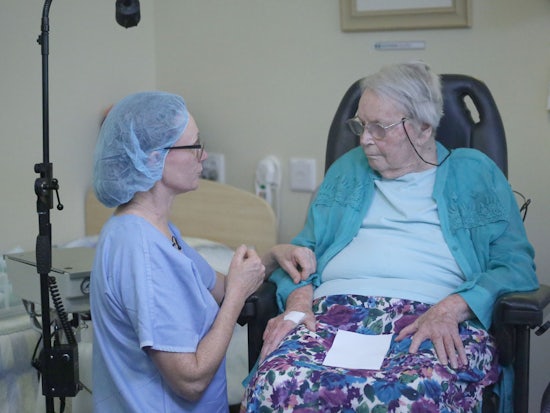Tailored dementia training for dentists
A series of online training videos have been produced to help educate dentists and their team on best practice care for people living with dementia.

The Australian Dental Association (ADA) and Alzheimer’s Australia have developed a series of videos on best practice care for people living with dementia
The Partnering in Practising Care videos are a collaboration between the Australian Dental Association (ADA) and Alzheimer’s Australia. Associate Professor Matthew Hopcraft, Federal Councillor of the Australian Dental Association explains the videos were developed by dental experts working in the field, consumer representatives from Alzheimer’s Australia, carers and people living with Alzheimer’s.
“Looking at it through the lens of patients and carers is really important and allowed us to tailor a program,” he says.
The training videos include information about understanding dementia and the issues carers and the patient have. For instance, knowing people with dementia struggle with new environments and noise helps with scheduling bookings.
“We may have noisy kids with toys in the waiting room so the receptionist needs to think about when the appointment is,” says Prof Hopcraft. “They should also gather information from the carer as to whether the patent is better in the morning or afternoon or needs an extra 15 or 20 minutes because the patient can’t be rushed.”
Other topics covered in the videos include issues around consent from a person with dementia and continuity of care. Keeping the same dentist is familiar and will reduce the stress of the appointment says Prof Hopcraft and he would like to see more dentists engaged with residential care homes, building partnerships and upskilling in this area.
“After all you’re still treating the same person,” he highlights.
Training will be delivered online meaning around 15,000 ADA members across the country, including those living in remote areas will be able to access the videos.
“What we want is for consumers to feel comfortable about going to the dentist and family members should also feel comfortable and talking to dentists,” says Prof Hopcraft, adding he would encourage consumers to advise their dentists of this resource if they weren’t already aware of it.
“People living with dementia should continue to go to the dentist as regular checks ensure their oral health is looked after as best as can,” concludes Prof Hopcraft.
Joan Jackman, who supports and cares for her husband diagnosed with younger onset dementia worked with the two organisations on the project. “Maintaining and supporting the overall health of people who have dementia through the full duration of their condition is fundamental to their health, happiness and quality of life,” she says.
“This includes their oral health, supported by dental practitioners who understand the complexities of this condition, the impact it has on maintaining oral health and the importance of working closely with the person and their ‘carer’ throughout the progression of the condition.”
“Congratulations to Alzheimer’s Australia and the Australian Dental Association for working together on this significant and long-overdue project to support and maintain the health of people with dementia – a fundamental human right,” says Ms Jackman.
For more information contact the Australian Dental Association on 02 9906 4412 or email contact@ada.org.au.























